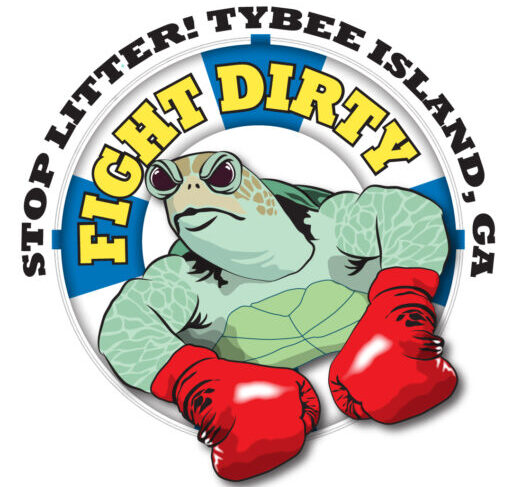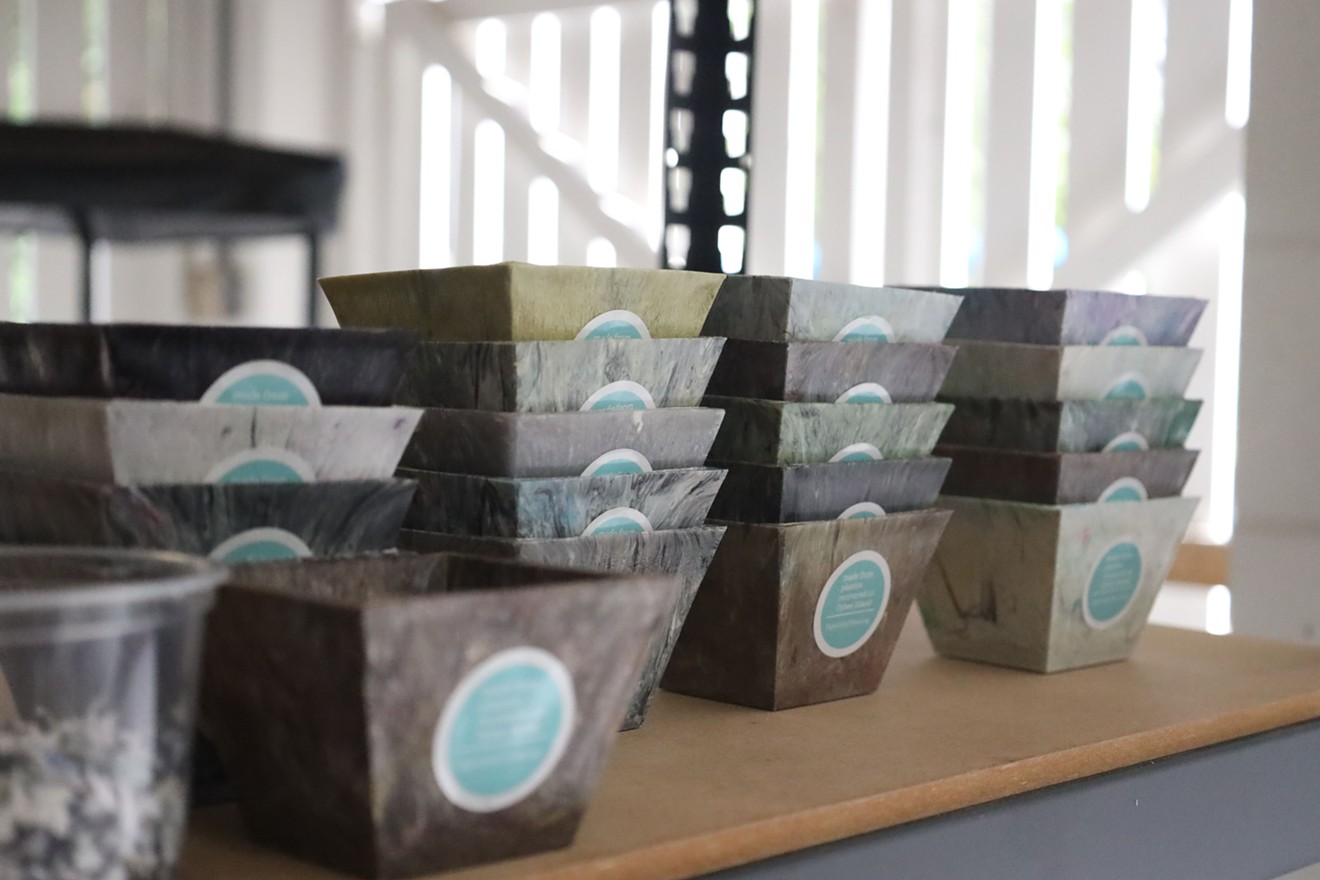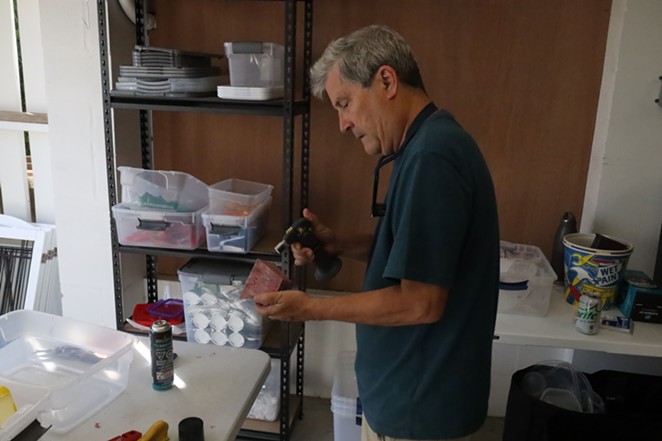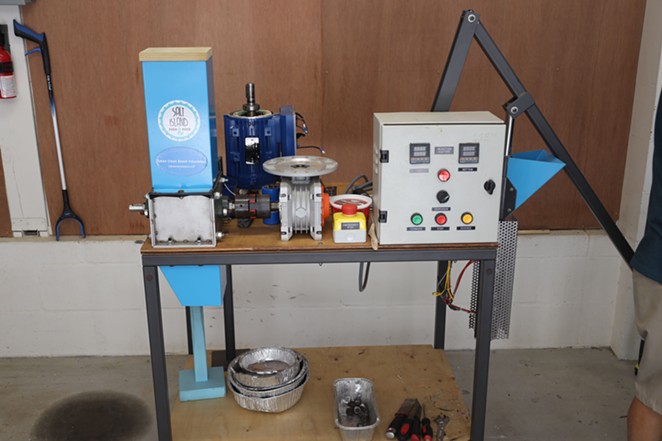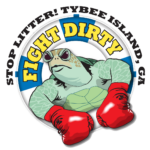CONNECT SAVANNAH
All plastics used to create these items were recovered on beach clean ups, and at Fight Dirty Tybee’s community drop off center for hard-to-recycle materials.
Fight Dirty Tybee has recently been taking these items to the Tybee Farmers Market where people can acquire them by giving a small donation. All donations received from the items will support Fight Dirty Tybee’s mission along with their other programs.
Eric and Emily Liebtag, the owners of Salt Island Fish and Beer, raised over $4,000 to help Fight Dirty Tybee acquire the machine last year. Since then, Arnold explained that the program has been a hit amongst Tybee locals who are looking to get rid of plastic they find on the beach.
“People really love the program. When we go to the farmers market with these planters, people can pick out colors they really like, and they’re not going to throw these things away in a landfill. They’re more inclined to hang on to them,” said Arnold.
The machine was designed and built by The Sea Monkey Project, a social enterprise based out of Malaysia that focuses on ocean plastic solutions and education.
All plastics used to create these items were recovered on beach clean ups, and at Fight Dirty Tybee’s community drop off center for hard-to-recycle materials.
The machine can shred and melt #2 and #5 plastics which consist of items like plastic bottle caps, takeout containers, yogurt cups and straws.
Arnold explained that #5 plastics cannot be recycled in Chatham County, and oftentimes ends up in landfills or are incinerated at the Material Recovery Facility. He also explained that it is rare for plastic to actually be recycled.
According to the Environmental Protection Agency (EPA) in 2018 a measly 8.7% of discarded plastic was actually recycled in the country. In fact, most plastics end up in landfills, with the rest either being incinerated or littered.
Although Fight Dirty Tybee’s machine is not the silver bullet for the excess amount of plastic that ends up in our oceans and beaches, it showcases how plastics can be turned into new sturdy products that stay out of landfills.
Find out more about Fight Dirty Tybee at tybeecleanbeach.org
